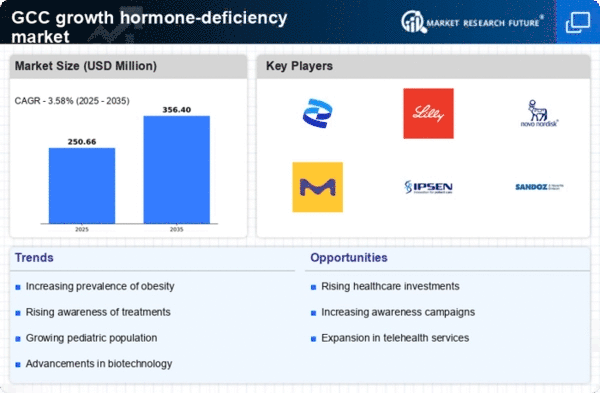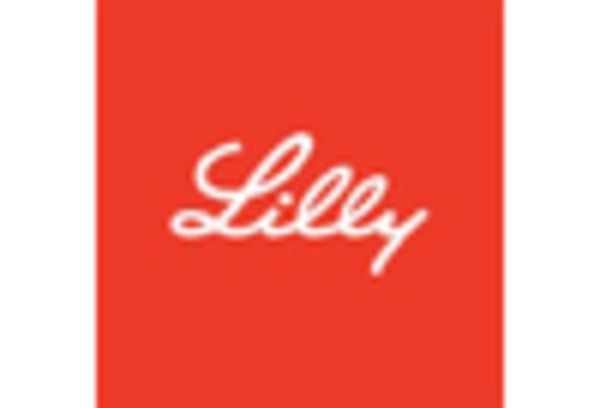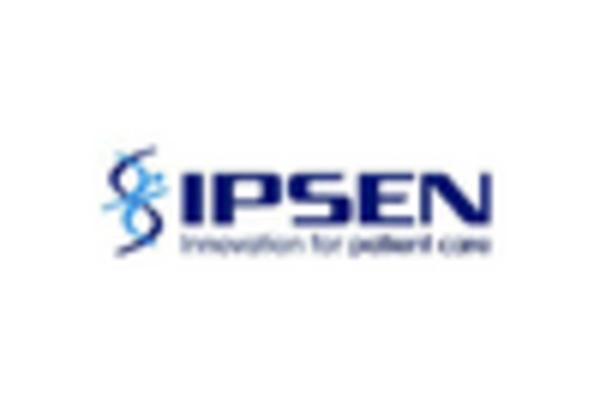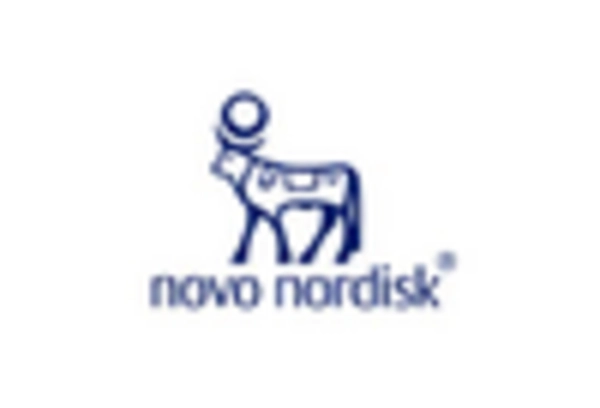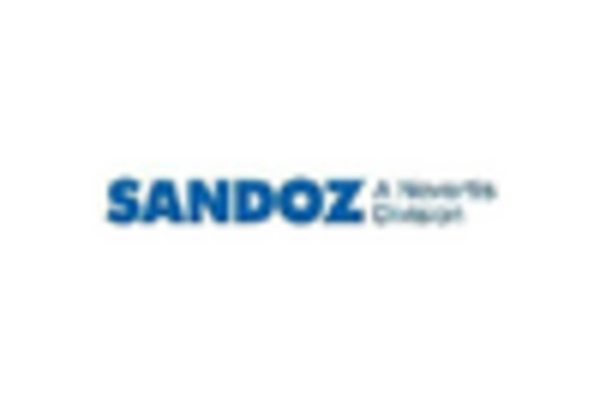Rising Healthcare Expenditure
The growth hormone-deficiency market is positively influenced by the rising healthcare expenditure in the GCC region. Governments and private sectors are investing significantly in healthcare infrastructure, which includes the development of specialized clinics and hospitals for endocrine disorders. This increase in funding is expected to improve access to treatment options for patients suffering from growth hormone deficiency. According to recent reports, healthcare spending in the GCC is projected to reach $100 billion by 2025, which could lead to enhanced availability of growth hormone therapies. As healthcare systems evolve and expand, the growth hormone-deficiency market is likely to experience substantial growth driven by improved patient access to necessary treatments.
Advancements in Diagnostic Techniques
The growth hormone-deficiency market is benefiting from advancements in diagnostic techniques that enhance the accuracy and speed of identifying growth hormone deficiencies. Innovative methods, such as MRI scans and blood tests, allow for more precise assessments of hormone levels and pituitary function. These advancements not only facilitate earlier diagnosis but also improve treatment outcomes, as timely intervention is crucial for effective management. The GCC region is witnessing an increase in healthcare investments aimed at upgrading diagnostic facilities, which is likely to further bolster the growth hormone-deficiency market. Enhanced diagnostic capabilities may lead to a higher detection rate, thereby increasing the patient population requiring treatment and driving market growth.
Emerging Biopharmaceutical Innovations
The growth hormone-deficiency market is being shaped by emerging biopharmaceutical innovations that offer new treatment options for patients. Recent developments in recombinant DNA technology have led to the creation of more effective and safer growth hormone therapies. These innovations are likely to enhance patient compliance and treatment outcomes, as they often come with fewer side effects compared to traditional therapies. The GCC region is witnessing a surge in research and development activities focused on biopharmaceuticals, which could lead to the introduction of novel therapies in the growth hormone-deficiency market. As these innovations gain traction, they may significantly alter the competitive landscape and drive market growth.
Increased Focus on Pediatric Endocrinology
The growth hormone-deficiency market is witnessing a heightened focus on pediatric endocrinology, which plays a crucial role in the diagnosis and treatment of growth hormone deficiencies in children. As awareness of childhood growth disorders increases, healthcare providers are prioritizing specialized training in pediatric endocrinology. This shift is likely to lead to improved treatment protocols and better patient outcomes. Additionally, the establishment of dedicated pediatric clinics in the GCC region is expected to facilitate early diagnosis and intervention, thereby expanding the patient base for growth hormone therapies. The emphasis on pediatric care is anticipated to significantly impact the growth hormone-deficiency market, fostering a more robust treatment landscape.
Increasing Prevalence of Growth Hormone Deficiency
The growth hormone-deficiency market is experiencing a notable increase in prevalence rates across the GCC region. Factors such as genetic disorders, chronic illnesses, and lifestyle changes contribute to this rise. Recent studies indicate that approximately 1 in 3,000 children may be affected by growth hormone deficiency, leading to a growing demand for effective treatments. This trend is likely to drive market growth as healthcare providers become more vigilant in diagnosing and treating affected individuals. Furthermore, the increasing number of adults diagnosed with growth hormone deficiency, often linked to aging, adds another layer of complexity to the market dynamics. As awareness of the condition expands, the growth hormone-deficiency market is poised for significant expansion in the coming years.


